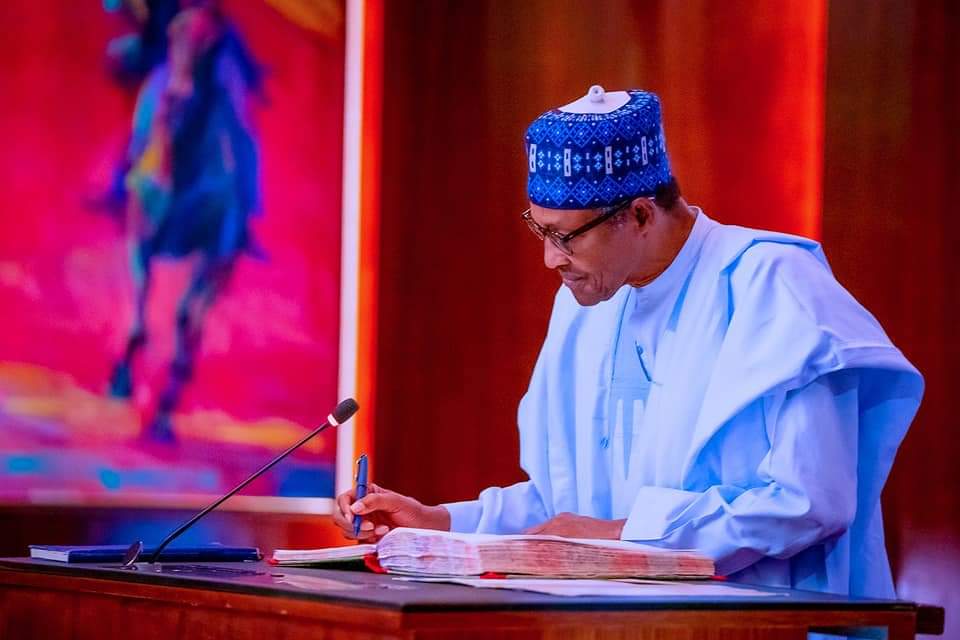President Muhammadu Buhari recently signed into law the constitution amendment allowing states in the country to generate, transmit and distribute electricity in areas covered by the national grid. The Senior Special Assistant to the President on National Assembly Matters, Senator Babajide Omoworare, said the provisions were part of the 16 bills in the Constitutional Alterations of the 1999 Constitution of the Federal Republic of Nigeria (as amended), transmitted to the President by the National Assembly early this year.
As such with the Fifth Alteration Bill No. 33, Devolution of Powers (National Grid System), Nigeria’s 36 states can now join the electricity generation business. The journey to be part of the electricity business in the country did not come that rosy for the states as the function had all along been in the exclusive list of the federal government.
Following the seemingly intractable and irreconcilable crisis in the power distribution value chain in Nigeria, the two chambers of the National Assembly had on March 1, 2022, passed a bill to allow states generate, transmit and distribute electricity in areas covered by the national grid.
However, a snag in the bill prompted the Nigeria Governors Forum (NGF) to point out that the bill limits the powers of the states’ helmsmen from building generation plants, transmission and distribution lines in areas not covered by the national grid. This, they argued, shrinks the powers of the states to make laws for electricity within their jurisdictions.
Having considered the injurious nature of the bill, they, therefore, recommended that the National Assembly sets up a National Economic Council (NEC), to work with the National Assembly leadership on the way forward for the electricity sector. The stakeholders in the industry argued that all the states have the potential to generate and transmit power because gas deposits are in the states and states which have rivers can build dams.
The power that is generated can be transmitted through alternative routes other than the national grid. However, where the national grid is inevitable, the states can use it and share the revenue with the Transmission Company of Nigeria (TCN).
It is believed that with the signing of the bill into law, state governments interested in entering this capital intensive business of generating, transmitting, and distributing electricity in areas covered by the national grid, should prioritize the demands that come with electricity business.
Nigeria, with its meagre generation of less than 14, 000 megawatts of electricity and far less than that in the distribution, is lagging behind compared to other sub-Saharan African countries.
This epileptic power generation, distribution and supply has rendered many industries moribund and taken the country’s manufacturing to an all-time low in output, growth and other indices. The result has been a depreciating economy, corruption in the power sector and drop in human capital development in the country.
It is, therefore, a welcome development that state governments are now involved in the power sector business. There is even more need that more individuals and corporate organisations are part of the distribution arm of the sector. In these ways, Nigeria will have a reliable and efficient power sector that ends up with positive multiplier effects on the economy.
That is why the recent giant step taken by Governor Chukwuma Soludo in signing a Memorandum of Understanding (MOU) with the Enugu Electricity Distribution Company (EEDC) to address the challenges of power supply in the state is highly commendable.
During the signing of the MOU at the State Government House in Awka, the governor had expressed commitment to make Anambra a prosperous and livable homeland, saying that regular power supply was critical to achieving this goal. The governor emphasized the importance of the partnership with EEDC, which he sees as a strategic investment that can help the state achieve its vision. He called on Anambra’s billionaires and millionaires to invest in the state.
Now that state governments are involved in the electricity generation in their respective states, the citizenry should be prepared to fulfill their civic obligations of paying their bills promptly. The era of bypassing rules in this respect should be over with this development.
To whom much is given, much is expected.
Written by TONY OKAFOR





Comments are closed for this post.